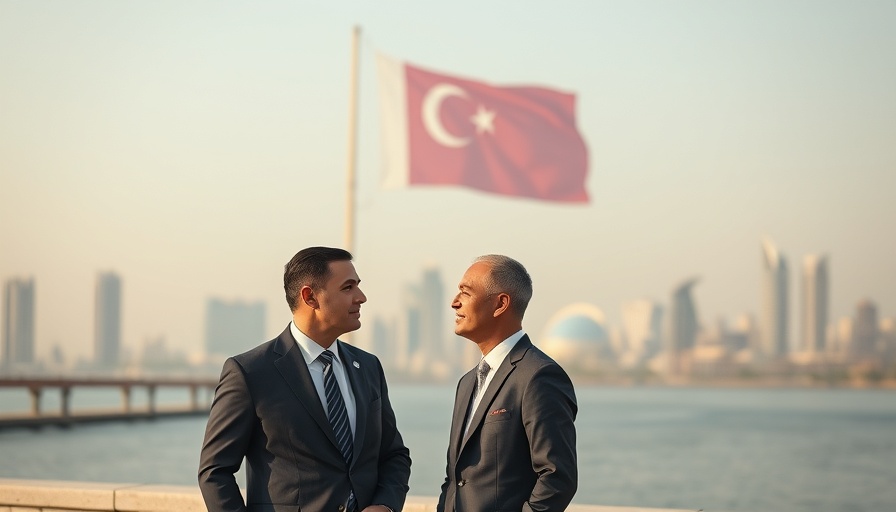
Ongoing Negotiations: A Glimpse into Hostage Talks
In a world often filled with turbulence and uncertainty, the recent developments between Israel and Hamas have sparked cautious optimism among diplomatic circles. Reports indicate that negotiations over the release of hostages are advancing, despite an initial response from Hamas that was deemed insufficient by mediators.
U.S. Special Envoy Steve Witkoff's presence on the ground has been critical. His recent departure has been interpreted as a turning point, signaling renewed momentum in the ongoing talks. All parties involved recognize the weight of these discussions, especially considering the lives at stake. For many, these negotiations are not just about politics; they encompass the profound implications of faith and humanity in a region fraught with conflict.
Faith and Diplomacy: A Complex Relationship
This situation underlines a unique relationship between faith and diplomacy. The biblical roots of both Judaism and Christianity in this land make the stakes higher for believers around the globe. Many Christians see the profound biblical significance in these events, shaped by narratives that echo through thousands of years. Thus, the developments carry not only geopolitical weight but also spiritual significance.
For faith communities, understanding the dynamics at play offers an opportunity for deeper engagement. Christians are called to respond not only through prayers for peace and resolution but also by advocating for justice and supporting humanitarian initiatives aimed at those affected by the conflict.
Local Perspectives and Global Impacts
The ongoing tensions and negotiations impact the lives of many individuals directly. The voices of those living amidst the conflict provide essential context. As reports emerge from both Gaza and Israel, it is crucial to listen to these narratives. Many Christians advocate for interfaith dialogue as an avenue toward understanding and ultimately peace.
As diplomatic negotiations unfold, those engaged in mission work have a pivotal role. They can promote acts of compassion, provide resources for those in need, and foster relationships founded on mutual respect and understanding, affirming that peace is possible and cooperation is essential in these challenging times.
What Is Next: Predictions and Opportunities
Looking ahead, the potential for breakthroughs in the negotiations hinges on several factors. The involvement of external mediators, the political dynamics within Hamas, and Israel's responses will all play significant roles. Some analysts speculate that the current atmosphere could lead to a more favorable climate for peace talks, provided that both sides remain committed to the dialogue.
As never before, the global Christian community can impact the narrative by standing for justice, supporting humanitarian causes, and reminding their faith communities of the call to love one's neighbor—especially amid strife. Recognizing that these negotiations are not simply political but deeply human should mobilize the global church toward action.
How You Can Support Peace Initiatives
The urgency of the moment is palpable. For interested individuals and communities, there are several ways to contribute. Supporting organizations focused on mediation, humanitarian relief, and educational initiatives within affected regions can create ripples of positive change. Moreover, fostering interfaith dialogue within local communities helps promote understanding and reduces hostility, which is paramount in cultivating long-lasting peace.
Closing Reflection: The Call to Advocate
Amidst the complexities of geopolitics, the heart of the matter lies with the people directly affected by these issues. As compassionate individuals, Christians are called to transcend boundaries, advocate for those who suffer, and promote peace with justice. With every conversation, advocacy effort, and prayer, believers can contribute toward healing the wounds of division.
 Add Row
Add Row  Add
Add 








Write A Comment